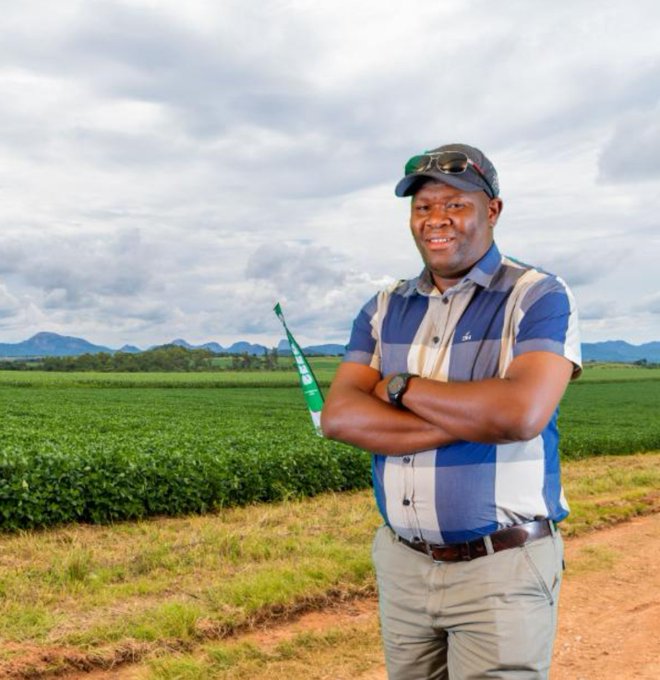|
Getting your Trinity Audio player ready…
|
A technical cooperation (TCP) project launched yesterday seeks to strengthen agricultural extension services in Zimbabwe.
Officiating the official launch of the TCP project, Dr. John Basera, the Permanent Secretary in the Ministry of Lands, Agriculture, Fisheries, Water and Rural Resettlement expressed his profound gratitude to the Food and Agriculture Organization (FAO ) for working hard to make the project a success.
“This project strongly supports our vision of revolutionising extension delivery services to be responsive to farmers’ needs in the face of the ever-changing demands and climate and enhance our agricultural production systems. The agriculture recovery plan recognizes the integral part played by extension agents in driving rural development. One of the key strategic interventions in the Agricultural recovery plan focuses mainly on the overall capacitation of the Extension Services Delivery System,” Dr. Basera said.
He alluded to the fact that the government of Zimbabwe is aware of the critical and pivotal role agricultural extension and advisory services play in imparting practical knowledge and skills to farmers and said they are one of the key drivers of agricultural growth in the various plans and strategies.
The extension capacitation drive entails increasing the mobility of extension staff through the provision of motorcycles and fuel, increased interventions towards appropriate and relevant training opportunities as well as equipping extension officers with digital technologies for effective technical backstopping of farmers to adopt Good Agricultural Practices (GAPs). This will lead to increased productivity and sustainability while addressing climate change and environmental degradation in agriculture, and boost food security.
President Emmerson Mnangagwa supported the Agriculture Ministry’s extension capacitation with over 5 000 motorbikes. To date, over 3 200 motorbikes have been delivered and distributed to Veterinary and Agritex extension officers in all the provinces. Dr, Basera said by end of August 2021, the delivery and distribution of all the 5 000 motorbikes to all extension officers will be completed.
A total of 5 000 smart tablets were procured and all have been distributed so far to agricultural extension officers. This capacitation is critical for the implementation of the Agriculture Information Management System and will enhance capacity building under the Zimbabwe Agric-hub extension training platform.
“We are envisioning extension services delivery based on ICTs (e-extension). In light of the need to cooperate and collaborate for the achievement of SDGs, Government through the Ministry entered into partnerships with development partners to address some of the challenges imposed on us by climate change. The partnerships led to the rolling out of Small Irrigation Revitalisation Programme (SIRP), UNDP Zimbabwe Resilience Building Fund, Green Climate Fund Project titled “Building Climate Resilience to Agriculture Livelihoods in Southern Zimbabwe”, Zimbabwe Agriculture Growth Programme among many. All these initiatives are meant to transform the sector in a manner that builds capacity to withstand the vagaries of nature and more importantly focused on smallholder farmers (youth and women in particular) under the banner of leaving no one behind as pronounced and enunciated by His Excellency, the President Cde Dr. E.D Mnangagwa in Vision 2030 as well as the Africa Agenda 2063.
“More so the support to kit our Soil testing laboratories goes a long way to in supporting the soil blitz conditioning program which entails countrywide promotion and application of lime to ‘sweeten’ acidic soils and consequently improve Fertilizer Uptake Efficiency (FUE) and yields. The initiative was rolled out in the 2020/21 season and farmers under the Pfumvudza programme were supported with soil testing services and soil conditioning agents (lime/gypsum). Over eight laboratories countrywide were equipped with soil testing kits as part of the decentralization of testing services. Mobile kits are also augmenting the speeding up of soil testing to inform lime/gypsum distribution. The support from FAO will go along in the government efforts to decentralise services up to the provincial level and allow as many farmers to get the services.”
FAO provided the soil testing kits, tablets, motorcycles, and training resources. Dr. Basera encouraged staff within the agriculture ministry to take the support seriously result and called for engagement with various partners in the private sector for continued improvement of extension service delivery.
